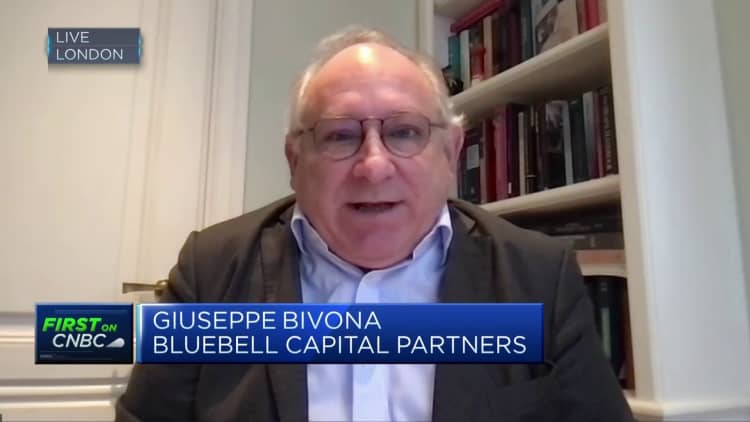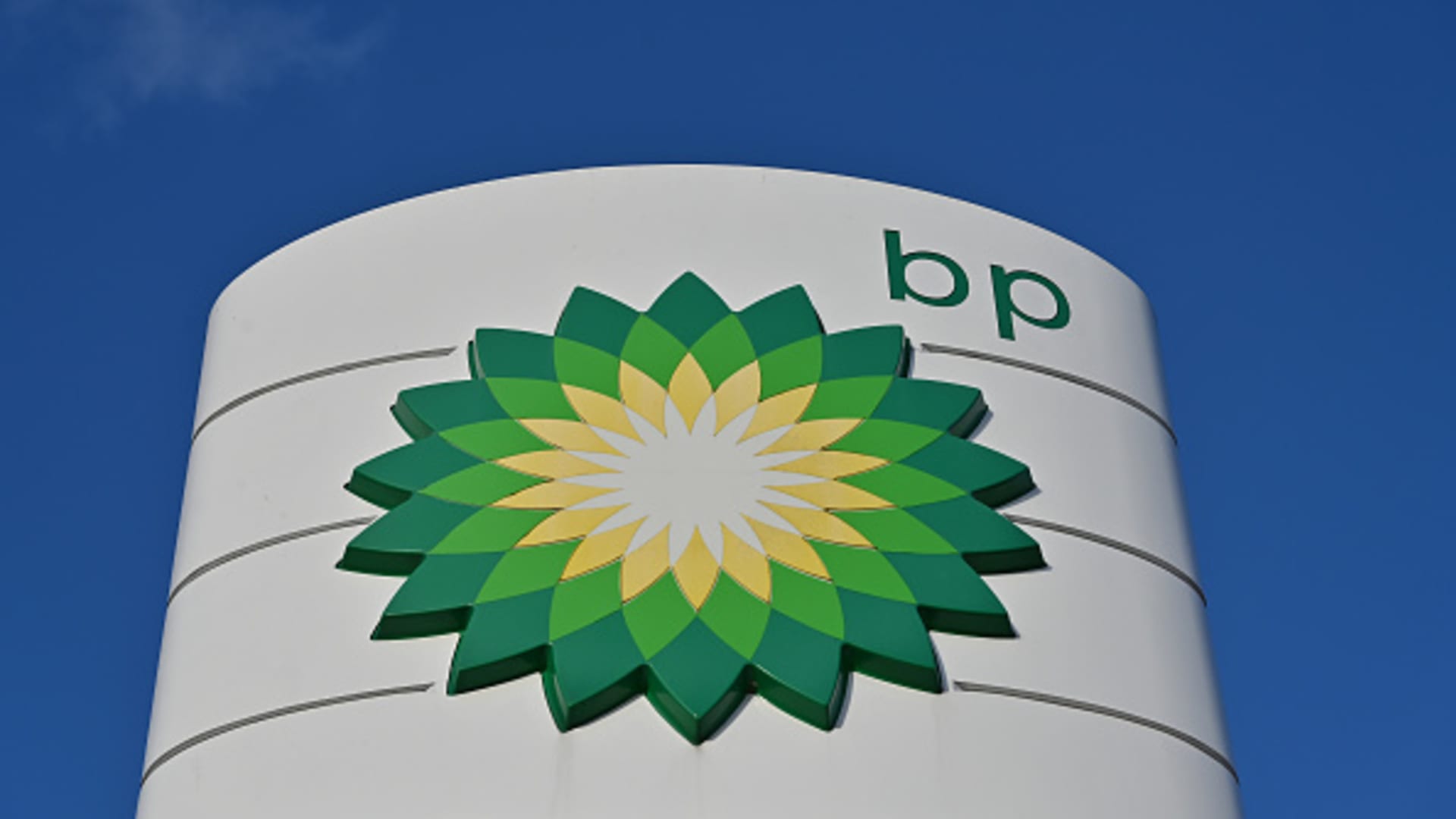
Activist investor Bluebell Capital Partners is pushing for BP to urgently change tack, saying it is “highly debatable” whether the oil major’s strategy of reducing fossil fuel investments in favor of clean energy has any chance of succeeding.
Giuseppe Bivona, partner and co-chief investment officer at Bluebell, on Tuesday said that the FTSE 100 energy company’s depressed share price relative to its U.S. and European peers had been “totally underwhelming” in recent years, and that it should now consider deploying capital in a “rational way.”
“This was as a result of a strategy which was intended to blindly shrink BP’s core business in oil and gas and venture in other business in clean energy where, quite frankly, it is highly debatable whether BP has any chance to succeed,” Bivona told CNBC’s “Squawk Box Europe.”
“The path to get to net zero by 2050 is very narrow, which means it is very unlikely that we are going to be at net zero in 2050. Don’t get me wrong, I’m very happy that we all — not just the oil major companies — as part of society aim toward this goal,” he added.
“But I think it is very rational for a company to make as its base case a scenario which, actually is very, very unlikely to happen. And on that front, we are not asking BP to renege on its strategy, but to adapt its strategy to the reality.”
His comments come shortly after it was revealed Bluebell co-founders Bivone and Marco Taricco wrote a letter to BP chair Helge Lund and then-interim CEO Murray Auchincloss in October. Auchincloss has since been appointed as permanent CEO of the British oil and gas major.
Bluebell’s letter, which was first reported on by the Financial Times on Monday, said that BP’s investment strategy assumed a “drastic decline in oil and gas demand, which we consider to be utterly unrealistic.”
In response to the publication of the letter, a spokesperson for BP said the company “welcomes constructive engagement” with its shareholders.
A general view of the BP logo and petrol station forecourt sign on January 22, 2024 in Southend, United Kingdom.
John Keeble | Getty Images News | Getty Images
“We have met with most of our major shareholders recently and continue to receive support for our strategy. We continue to make significant progress, remain focused on delivery, and are confident the strategy will grow the value of bp and deliver sustainable long-term value for shareholders,” BP said.
Bivona declined to disclose Bluebell’s stake in BP, saying that it was below a reporting threshold. The relatively small but influential London-based firm, which focuses on large cap European equities, has previously mounted campaigns against French food company Danone and mining giant Glencore.
‘Clear admission’ of a strategic mistake
Under the leadership of Bernard Looney, who resigned in September after less than four years on the job, the oil major had promised that its overall emissions would be 35% to 40% lower by the end of the decade.
The firm, which was one of the first energy giants to announce plans to cut emissions to net zero “by 2050 or sooner,” watered down these climate plans last year.
It said on Feb. 7 that the firm would instead target a 20% to 30% cut, noting that it needed to keep investing in oil and gas to meet demand.
Bluebell’s Bivona said last year’s announcement was a “clear admission” of a strategic mistake and another adjustment was now needed.
“I’m very glad for the discussion we are having with BP, which anyway is listening and is proving to be a company willing to constructively engage with all of their shareholders,” Bivona said.
Shares of BP were slightly higher on Tuesday afternoon in London. The company is scheduled to release its fourth-quarter and full-year 2023 results on Feb. 6.












